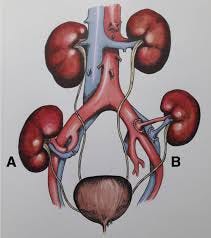A kidney transplant is a surgical procedure that involves placing a healthy kidney from a donor into the body of a person with kidney failure. This procedure is typically recommended for individuals whose kidneys have ceased to function adequately, necessitating an alternative to dialysis for managing kidney function and overall health.
The Procedure: During a kidney transplant, a surgeon places the donor kidney into the recipient’s abdomen. The donor kidney’s blood vessels are connected to the recipient’s blood vessels, and the new kidney is connected to the recipient’s bladder through a ureter. The patient will then take medications to prevent their immune system from rejecting the new kidney.

Who is a Candidate for a Kidney Transplant?
Eligibility for a kidney transplant depends on several factors, including the patient’s overall health, kidney function, and the presence of other medical conditions. The following criteria help determine if someone is a suitable candidate:
- End-Stage Renal Disease (ESRD) or Kidney Failure:
- Candidates typically have ESRD, where kidneys have lost about 85–90% of their function. This condition often requires dialysis, a treatment that performs the kidneys’ functions artificially.
2. Good General Health:
- Patients need to be in good overall health to handle the stress of surgery and the long-term use of immunosuppressive medications. Chronic conditions like diabetes, heart disease, or severe infections might affect eligibility.
3. Adherence to Treatment:
- Candidates must be able to adhere to a strict regimen of medications and follow-up care. Successful transplantation requires lifelong use of immunosuppressants to prevent rejection of the new kidney.
4. Absence of Active Cancer or Severe Infections:
- Active cancer or severe infections can complicate surgery and the healing process, making these conditions a contraindication for transplantation until they are adequately treated or resolved.
5. Support System:
- A strong support system of family or friends can be crucial for managing post-surgical care, medication adherence, and follow-up appointments.
6. No Significant Psychosocial Issues:
- Candidates should be free of significant psychosocial issues that could affect their ability to adhere to treatment or manage post-transplant care.
Special Considerations:
- Living vs. Deceased Donor:
- A kidney can come from a living donor (a person who is still alive and has agreed to donate one of their kidneys) or a deceased donor. Both sources are viable, though living donor transplants often have better outcomes due to the organ’s preserved condition.
- Blood Type and Tissue Matching:
- Successful transplantation requires matching blood types and, ideally, tissue antigens to minimize the risk of organ rejection. Compatibility is determined through a series of tests before the transplant.
- Age and Other Health Conditions:
- While age alone is not a disqualifying factor, older patients or those with multiple health conditions may need thorough evaluation to ensure they can safely undergo the procedure and benefit from it.
Conclusion
A kidney transplant can offer a life-saving alternative to dialysis for individuals with severe kidney disease. The suitability of a patient for this procedure is determined through a comprehensive evaluation process that considers medical, psychological, and social factors. If you or someone you know is experiencing kidney failure, discussing the option of a kidney transplant with a nephrologist or transplant specialist can provide valuable insights into potential treatment paths and improve overall outcomes.
Comments
Post a Comment